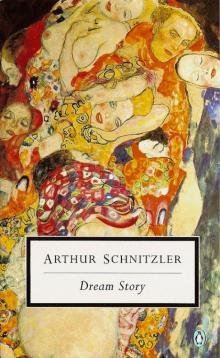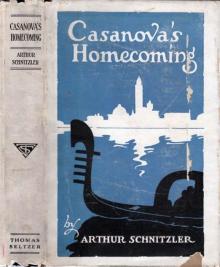- Home
- Arthur Schnitzler
Late Fame
Late Fame Read online
ARTHUR SCHNITZLER (1862–1931) was born in Vienna to a well-to-do Austrian Jewish family. His father was a prominent laryngologist, and Arthur followed him into the profession, obtaining his doctorate of medicine and working at Vienna’s General Hospital until he stopped practicing to pursue writing full time. His first play, Anatol (1893), was a success. Other early works include Reigen (1897), which was adapted into Max Ophüls’s 1950 film, La Ronde; and Lieutenant Gustl (1900), a military satire denounced by anti-Semites who successfully lobbied for Schnitzler to be discharged from his position as a reserve officer in the medical corps of the Austro-Hungarian army. In 1903, he married Olga Gussmann, and the couple had a son and a daughter. Schnitzler wrote dozens of novels, novellas, and plays, including The Road into the Open (1908); Fräulein Else (1924); and Traumnovelle (1926), which Stanley Kubrick adapted into Eyes Wide Shut. Schnitzler and Gussmann were divorced in 1921. In 1928, their daughter, Lili, committed suicide; Schnitzler died following a stroke three years later.
ALEXANDER STARRITT is a writer, translator, and journalist who lives in London. His writing has been short-listed for the Paris Literary Prize and he has contributed articles to The Times Literary Supplement, The Spectator, and The Mail on Sunday.
WILHELM HEMECKER teaches in the Department of European and Comparative Literature and Language Studies at the University of Vienna.
DAVID ÖSTERLE is a researcher and assistant to the director at the Ludwig Boltzmann Institute for the History and Theory of Biography in Vienna.
LATE FAME
ARTHUR SCHNITZLER
Translated from the German by
ALEXANDER STARRITT
Afterword by
WILHELM HEMECKER and
DAVID ÖSTERLE
NEW YORK REVIEW BOOKS
New York
THIS IS A NEW YORK REVIEW BOOK
PUBLISHED BY THE NEW YORK REVIEW OF BOOKS
435 Hudson Street, New York, NY 10014
www.nyrb.com
Copyright © 2014 by Paul Zsolnay Verlag, Vienna
Translation copyright © 2015 by Alexander Starritt
Afterword copyright © 2015 by Wilhelm Hemecker and David Österle
All rights reserved.
Cover art: Oskar Kokoschka, The Friends, 1917–1918; © 2016 Fondation Oskar Kokoschka / Artists Rights Society (ARS), New York / ProLitteris, Zürich
Cover design: Katy Homans
First published in German as Später Ruhm in 2014. Published here by permission of the Syndics of Cambridge University Library.
This translation was made possible, in part, by a grant from the Federal Chancellery of Austria, Department of Literature and Publishing.
Library of Congress Cataloging-in-Publication Data
Names: Schnitzler, Arthur, 1862–1931, author. | Starritt, Alexander, translator.
Title: Late fame / by Arthur Schnitzler; translated by Alexander Starritt; afterword by Wilhelm Hemecker and David Österle.
Other titles: Später Ruhm. English
Description: New York: New York Review of Books, 2017. | Series: New York Review Books Classics | Originally published in Vienna, Austria, by P. Zsolnay in 2014 under title: Später Ruhm.
Identifiers: LCCN 2016040694| ISBN 9781681370842 (paperback) | ISBN 9781681370859 (epub)
Subjects: LCSH: Schnitzler, Arthur, 1862-1931—Translations into English. | Authors, Austrian—19th century—Fiction. | Vienna (Austria)—Social life and customs—Fiction. | Satire. | BISAC: FICTION / Satire. | FICTION / Literary. | FICTION / Humorous.
Classification: LCC PT2638.N5 S6313 2017 | DDC 833.912—dc23
LC record available at https://lccn.loc.gov/2016040694
ISBN 978-1-68137-085-9
v1.0
For a complete list of titles, visit www.nyrb.com or write to: Catalog Requests, NYRB, 435 Hudson Street, New York, NY 10014
CONTENTS
Biographical Notes
Title Page
Copyright and More Information
LATE FAME
Afterword
Notes
LATE FAME
HERR EDUARD Saxberger came home from his walk and climbed slowly up the stairs to his apartment. It had been a lovely winter’s day and as soon as office hours ended, the old gentleman had set off as he often did to stroll around in the fresh air, going far beyond the suburbs to the very last of the houses. He was a little tired and looking forward to his warm and friendly room.
The housekeeper met him with the news that a young man she’d never seen before had been waiting for half an hour. Curious, the old gentleman, who almost never had visitors, went into the sitting room. As he entered, the young man stood up from an armchair and bowed to him.
Saxberger reciprocated the bow and said, “I’m told you’ve already been waiting for some time—how can I help you?”
The young man remained standing and replied, “Esteemed Herr Saxberger, please allow me to introduce myself. My name is Wolfgang Meier, author.”
“Pleased, very pleased to meet you, won’t you take a seat?”
“Herr Saxberger,” the young man began after he had sat down, “First of all, I must apologize for being so presumptuous as to enter your home unknown and uninvited. But I’d searched in vain for a different way of making your distinguished acquaintance.”
“You flatter me.”
“And for quite some time, Herr Saxberger, making your acquaintance has been one of my, or rather our, most fervent wishes—because what I’m saying here is not only in my own name.”
Herr Meier accompanied these words with a friendly smile. Saxberger sized him up. He was pale, with simple blond hair, and very respectably dressed. While he spoke, he played with a pince-nez that hung on a black cord round his neck. “I’m intrigued,” said Herr Saxberger, “by why this fervent wish . . . since when this fervent wish . . .” he interrupted himself in embarrassment.
“For some time,” answered Meier, “and, to be more precise, I would say: since the day when I, or rather we”—here he again gave a friendly smile—“had the privilege of encountering your Wanderings.”
“What?” Herr Saxberger cried out in amazement. “You’ve read my Wanderings? People still read my Wanderings?” He shook his head.
“People might not read them any more,” replied the young man. “But we read them, we admire them and, I think, in time, people, too, will again come to read and admire them.” As Herr Meier spoke in this way, his cheeks flushed a little and his voice became more animated than before.
“You astonish me, Herr . . . Meier,” said Saxberger, “and I would very much like to know who you are, I mean those in whose name you’re speaking. I had no idea that anyone today still knew my Wanderings.” The old gentleman stared into space—“Even I haven’t thought of them, it’s been so long since I thought of them. For years, I’ve been so far from any of these things, so far.”
Herr Wolfgang Meier smiled delicately. “It hasn’t escaped my, or, I should say, our, attention, dear sir, that you haven’t committed anything to print for a long time, something that surprised and saddened us. And it was, after all, just chance that led us—though here I can probably say me—to discover your exquisite book, so to speak, anew.”
Saxberger found the words he heard singularly moving. Was this young man really speaking about him? Was it truly possible that this young man, a complete stranger, knew about him and his forgotten work? “How did you come across the book?” he asked.
“It was very straightforward,” replied Wolfgang Meier. “I was having a look around a second-hand bookshop and among the books I picked up was your slim volume. As soon as I read the first poems, they had an indescribably powerful effect on me. I took the book home and read it straight through, which as you know hardly ever hap
pens with a collection of poems. When I looked at the title page again and saw the year 1853, I said to myself: you could have known this man—that same evening, I took the book with me to our little circle . . .”
“What circle is that?”
“It’s a group of young writers who stay apart from those following the beaten track. If I said their names, it wouldn’t tell you much. These names are not yet known. We are simply artists, no more than that, and our time will come.” Herr Meier said these words in a tone that was calm but categorical.
The old gentleman listened attentively, nodding. It was so peculiar. Artists, artists—how that word sounded! All at once there rose up in him muddled images of distant days and forgotten people. Names occurred to him, and what had become of them—and then he saw himself as you see yourself in a dream, as a young man, saw himself youthful, laughing, talking, as one of the best and proudest in a circle of young people who stayed apart from those following the beaten track and did not want to be anything but artists—and he said aloud, as if the young man opposite him had had these rapid thoughts along with him, “That is long ago, that is so long ago!”
Wolfgang Meier observed the old gentleman in silence; only the eyes in that wrinkled, beardless face seemed to have remained young, and these now looked past the small lamp standing on the table and out through the window into the dark-blue night.
“1853”—said Meier after a short pause, “that certainly is a long time ago,” and then he continued more spiritedly, “You wouldn’t believe, dear sir, how pleased we were when we learnt that the poet of the Wanderings was living in our city; it felt as if we had a debt to repay to you.” With these words Meier rose and, bowing slightly, said in a solemn voice: “The youth of Vienna ask that you be so good as to accept, through me, their most deeply respectful greetings and their thanks.”
Saxberger wanted to get up, but the young man pressed him amiably back into his chair. His voice charged with emotion, Saxberger answered, “Thank you, I don’t know, no, I really don’t know . . .”—he stopped speaking, and the young man quietly looked him in the eye with an encouraging smile until he carried on: “It’s so long ago—I . . . I . . . I don’t know anything about it any more, no one thought much of it back then. I haven’t written anything for so long. You see, no one takes any notice and then, by and by, I lost my appetite for it, you understand, along with my youth. And also there were worries, the daily work, it all ended so much of its own accord that I didn’t even notice . . .”
The young man listened . . . he shook his head, commiserating, serious.
“And I did write other things, too, oh yes, not just verse. I once even wrote a play.”
“What?” exclaimed Meier, “a play! But, please, where is it? Please!”
“I don’t know, I really don’t know. My God, I sent it round the theaters at the time—three years it must have done the rounds, or four. Then, well, I let it go. That’s more than thirty years ago . . .”
After saying nothing for a moment, Meier stood up and, while resting one hand on the back of the chair, burst out: “It’s the same old story. At the start, we’re satisfied to have just our own pleasure in our work and the interest of the few who understand us. But when you see those coming up around you, winning a name and even fame for themselves—then you would rather be heard and honored as well. And then come the disappointments! The envy of the talentless, the frivolity and malice of reviewers, and then the horrid indifference of the public. And you get tired, tired, tired. You still have a lot you could say, but nobody wants to hear it, and eventually you yourself forget that you were once one of those who wanted great things, who have perhaps even already achieved them.”
Saxberger accompanied the young man’s words with a slow nod of agreement. Yes, that was exactly how it had been. He had just needed this young man to come and remind him.
“But,” said Meier, “I don’t want to take up any more of your valuable time.”
“Oh, my time isn’t valuable,” responded Saxberger with a melancholy smile . . .“When my office hours are over, I don’t have anything else to do.”
“So you have an office job?” Meier asked with polite interest. “I imagine you can’t find that particularly satisfying?”
“Oh, goodness me, my dear man, you get used to it, and what would I do all day if I didn’t have a profession?”
“So you’re . . . content?”
“I actually can’t complain. I can’t actually imagine my life as any different—I ask you, when you’ve been in a post for almost thirty-five years. Yes, yes,” he affirmed as Meier shook his head incredulously, “I’ve long been able to celebrate my office jubilees!”
“But at the beginning, when you still . . . wrote, this monotonous employment must have been extremely painful for you.”
“Well, everyone has to have some occupation. It’s not so bad. Though the opportunities for promotion could be better, that has to be said. But things are good for me, I really can’t complain.” The old gentleman nodded good-naturedly. “When I started,” he continued, “yes, you’re quite right, it wasn’t how it is now. You’ve reminded me. It’s quite true that there was a time—” he smiled—“when I didn’t like to go to the office.”
“Is that so?” cried the young man, pleasantly moved.
“When I used to be a ‘poet,’ you’re right, you’re right, I would sometimes even be absent without any kind of excuse.”
“Oh, I understand that so well!” exclaimed Wolfgang Meier. “The Wanderings couldn’t have been written while you sat in your office day after day. You can hear in those proud verses that they were made by someone who had cast off the shackles of the everyday.”
“A lovely time, a lovely time,” said the old gentleman, and sank back into his thoughts.
“What message can I give my friends?” Meier asked ebulliently.
“Please thank them, thank them very warmly. Please say that I was very pleased, and that it was so unexpected. It’s touched me. Tell them I honestly didn’t believe there was anyone in the world who still knew my name—apart, of course, from my colleagues in the office. And send them all my regards, and perhaps they will have more luck than I did.”
“Herr Saxberger, perhaps I could be so bold as to ask whether you might, sometime when it’s convenient, devote one of your spare afternoons to us?”
“It would be a pleasure,” replied Saxberger, “to meet your friends and thank them in person.”
“Then I’ll try my luck again one evening soon.”
Meier said goodbye to the old gentleman, who accompanied him to the door. “My most heartfelt thanks again for the kind reception,” said the young man when he was already standing in the stairwell.
“Send my regards to them, all your friends, send my best regards,” Saxberger called after him.
Then he went back into his room. He shook his head, laughing. It seemed strange to him when he thought that, in an hour, he would be sitting at his usual place in the Pickled Pear, as though nothing had happened.
•
The next day, Herr Saxberger received through the post a little volume on whose title page were the words: Poems by Wolfgang Meier. On the first inside page he had written in ink: “To the poet of the Wanderings, with heartfelt gratitude, the author.” That’s an elegant gesture, thought the old gentleman, and laid the little book on his desk, resolving to read it that evening. Poems! Who would have predicted it? For years he had read only the newspaper and, before going to sleep, perhaps some “popular” novel.
When he came home after lunch that day and stretched out on the divan, he began to immerse himself in Wolfgang Meier’s poetry. Ah! This was by no means as easy as a popular novel. That much was obvious to him after only the first few verses. Saxberger read with great conscientiousness; he read all the more carefully and concentratedly the harder it became for him to form any clear opinion of the poems. He became very anxious. One thing seemed beyond question: they were pretty verses�
�but when he asked himself what more he might say about them, he found himself at a loss. He came to a poem that tried to portray a landscape. (And here he felt he was seeing more deeply into the work.) It had a stronger effect on him than the earlier ones, which had sung the praises of beautiful girls. Something in him resonated with it. He loved nature. And the older he had become, the greater his love for it had grown. He had discovered new ties to it by which he had not previously been connected. Oh, it was true—love, youth—that was all in the past. And so there was little that those verses could mean to him. What did the high spirits and the triumphs of youth have to do with him these days? How many years had it been since he’d been interested in those things, since he’d even noticed anything of them? He stood alone in the world. Had never been married, never had children—all connection to youth had been lost as he slowly grew older. All his social intercourse was with friends—who grew old as he did.
And as he leafed further and there were more verses telling him about beautiful blue eyes and tender evenings, a bitter feeling crept over him. He lowered the book and stared into the distance.
He wondered what he was supposed to say to Herr Wolfgang Meier on his next visit. He couldn’t tell him that he hadn’t—well, hadn’t what?—hadn’t understood it? Not understood it!
Saxberger was almost frightened. He, the poet of the Wanderings, didn’t understand the verses of Herr Meier! He paced up and down the room a few times. He lit the lamp. And then, tentatively and smiling a little to himself, he opened the bookcase and bent down in front of it. On the lowest shelf, under old magazines and brochures, there must still be a copy, or even two or three, of the Wanderings.
Yes, there they were. More than three. He still had six copies. But it was remarkable. He had, naturally, seen these slight volumes many times in years past. He must also have taken them in his hand and—never noticed them. His memory held a false picture of how they looked. He still imagined the Wanderings as when they, just published, had been set out in the display windows of a few bookshops. A dark-green, slender volume on whose cover the title was printed in pale letters that were tall but narrow. But the book he held in his hand was blue and the letters were small. And he realized something else: he had seen the books countless times and yes, he recognized them when he saw them . . . but he simply no longer had the feeling that said: these are the Wanderings, which I myself, which I wrote!

 Dying
Dying Late Fame
Late Fame Dream Story
Dream Story Casanova's Homecoming
Casanova's Homecoming